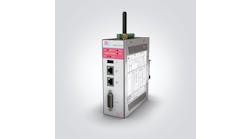In a market that seems to always be in flux, some believe programmable logic controllers (PLCs) are a thing of the past. Programmable automation controllers (PACs) are on the rise, but what makes these controllers different? Is there a difference?
In these four recent articles, several authors delve into the latest developments, current trends and future of the PLC.
Is the PLC obituary premature?
Amid all the rumors surrounding the possible decline of the PLC, Marty Weil explains that not only is the PLC market stable, it’s thriving. The global PLC market has experienced strong growth across all regions, leaving those that declared them dead scratching their heads. In this extensive article, Marty Weil tackles the issue at an impressive scale while arguing PLCs may be just as relevant as ever. Read more.
2015 State of Technology Report: PACs/ PLCs
In this comprehensive ebook, Control Design spans the introduction of the PLC all the way up to the emergence of the PAC. With trend analysis and real life examples of PLC/ PAC implementation from Control Design writers, this is the most up-to-date and expansive collection covering the state of the PLC and PAC. Read more.
Small-Assembly Robot Integration Concepts Within the PLC
Although some argue the PLC may be coming to an end, they still aren’t immune to innovation. In this article, Chris Elston covers recent small-assembly robot integration concepts within the PLC and explains how changing the mindset regarding third-party control could fundamentally transform the controllers. Read more.
Are the PLC’s days numbered?
Control and Control Design writer Jim Montague explains that PLCs’ newest adversaries, machines with IP addresses and Ethernet links to PC-based controls, could threaten the state of PLCs. Despite the overwhelming use of PLCs on plant floors, is it possible that microprocessors and its software’s growing functionalities and popularity could trample traditional hardware to the point that PLCs are no longer relevant? Read more.



